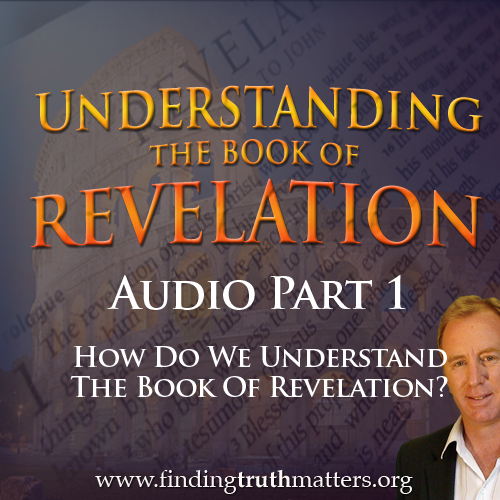home > articles > The Bible Isn’t The Problem

Dr. Andrew Corbett, December 2017
Even the best of people misunderstand what God’s Word means. For example, John the Baptist, despite having heard directly from God about the identity of the Messiah – and shortly afterwards seeing this word come to pass when Jesus came to be baptised by him – had made certain assumptions about what this Messiah would do and be like. But when John was thrown in prison by Herod, he sent messengers to Jesus to ask Him a question which was perplexing Him.
¶ The disciples of John reported all these things to him. And John, calling two of his disciples to him, sent them to the Lord, saying, “Are you the one who is to come, or shall we look for another?” And when the men had come to him, they said, “John the Baptist has sent us to you, saying, ‘Are you the one who is to come, or shall we look for another?’”
Luke 7:18-20
John had done what many people do when they read the Bible. Rather than accepting the Word of the Lord for what it says, John had made certain interpretations and assumptions of it. Perhaps, like many of the Jews of his day, John had interpreted the prophecies of the Messiah as the conquering King who was to vanquish the Romans, restore the throne of David, and ultimately usher in world peace. But Jesus the Christ did not fit John the Baptist’s interpretation of who the messiah was supposed to be.
And John bore witness: “I saw the Spirit descend from heaven like a dove, and it remained on him. I myself did not know him, but he who sent me to baptize with water said to me, ‘He on whom you see the Spirit descend and remain, this is he who baptizes with the Holy Spirit.’ And I have seen and have borne witness that this is the Son of God.”
John 1:32-34
When the messengers from John the Baptist came to Jesus with John’s question, Jesus didn’t correct his misinterpretation. Instead, He answered John’s question with evidence confirming that He was indeed the One.
Many people do the same today with Bible prophecy. They read Bible prophecies and, like John the Baptist, they make some wild assumptions about them and mistakenly declare their interpretation to be the word of the Lord. For example, take the Olivet Discourse of Matthew 24 and 25. Many people assume that Matthew 24 is about the return of Christ. This is despite the word ‘return’ not appearing in the Disciples’ questions to Christ – or in His answer to them! In Matthew 24:30 Jesus says that He was to “come” on the “clouds of heaven”. Yet despite this, many people assume that when He said ‘come’ He meant return, and that when He said it would be on the clouds of heaven that He actually meant the clouds of planet earth. I wonder how many people realise that He was citing a Daniel passage in which the Son of Man is described as ‘coming’ up to the Ancient of Days?
¶ “I saw in the night visions,
and behold, with the clouds of heaven
there came one like a Son of Man,
and he came to the Ancient of Days
and was presented before him.
And to him was given dominion
and glory and a kingdom,
that all peoples, nations, and languages
should serve him;
his dominion is an everlasting dominion,
which shall not pass away,
and his kingdom one
that shall not be destroyed.
Daniel 7:13-14
 Whenever we bring our assumptions to a Biblical text we are committing eisegesis. Whenever we practice eisegesis will can only ever misinterpret the Bible and thereby misrepresent it to others and set ourselves up for disappointment.
Whenever we bring our assumptions to a Biblical text we are committing eisegesis. Whenever we practice eisegesis will can only ever misinterpret the Bible and thereby misrepresent it to others and set ourselves up for disappointment.
There is, however, a safer way to interpret Bible prophecy. This involves exegesis rather than eisegesis. By allowing Scripture to interpret Scripture, reading texts in context, noting original audience understanding, and not interpreting a verse of Scripture in a way that contradicts the overall message of Scripture, we are undertaking exegesis.
To read my exegetical exploration of the Olivet Discourse, download my eBook, The Most Embarrassing Verse In The Bible. To begin to listen to my audio teaching series on the Book of Revelation, click here.
The Bible isn’t the problem, but often people’s interpretations of it are.
Andrew Corbett












































There are so many interpretations of different scriptures. Most pastors claim to be using exegisis. How can one know which is true?
Tyler, you’re spot on. While there are many possible applications of a Text, there can be only one correct interpretation of it. To evaluate suggested interpretations of a Text requires that we apply First Thessalonians 5:21 where we are told to ‘test everything’ which is in the context of testing prophecies uttered, which sermons fit into. There are four base principles for sound hermeneutics:
(i) Biblical Context – words in the Bible are not ‘unequivocal’ (only one meaning), rather, they are ‘equivocal’ (determined by the context they are used). For example, the word ‘leaven’ has at least three distinct meanings in Scripture depending on how it is used.
(ii) Historical/Cultural Context – understand the period, the occasion, the audience, of a Biblical passage/book contributes to correctly interpreting it. This requires that we seek to understand how the original audience would have most likely understood a passage.
(iii) Scripture Interprets Scripture – often the Scriptures interpret a passage of Scripture by directly giving us its meaning. When we have this we have no need to look for any other interpretation. For example, there are several New Testament passages which interpret Old Testament passages.
(iv) The ‘Analogy of Faith’ – this is the term used for interpreting obscure passages in light of plain passages. We should never interpret an obscure verse of Scripture in a way that contradicts the overall message of Scripture.